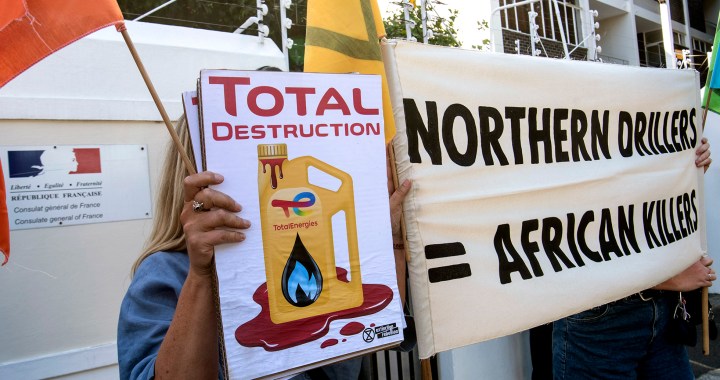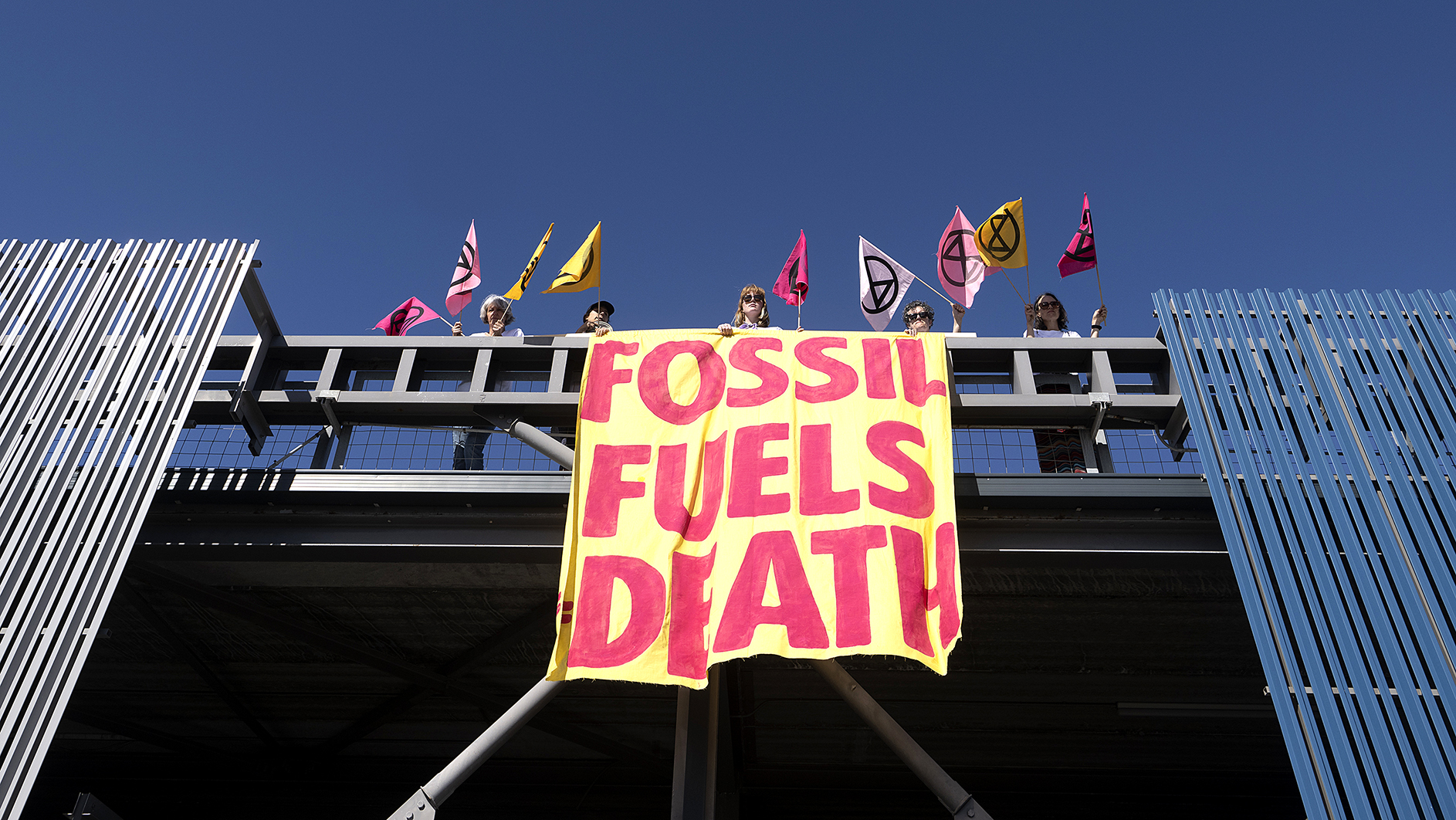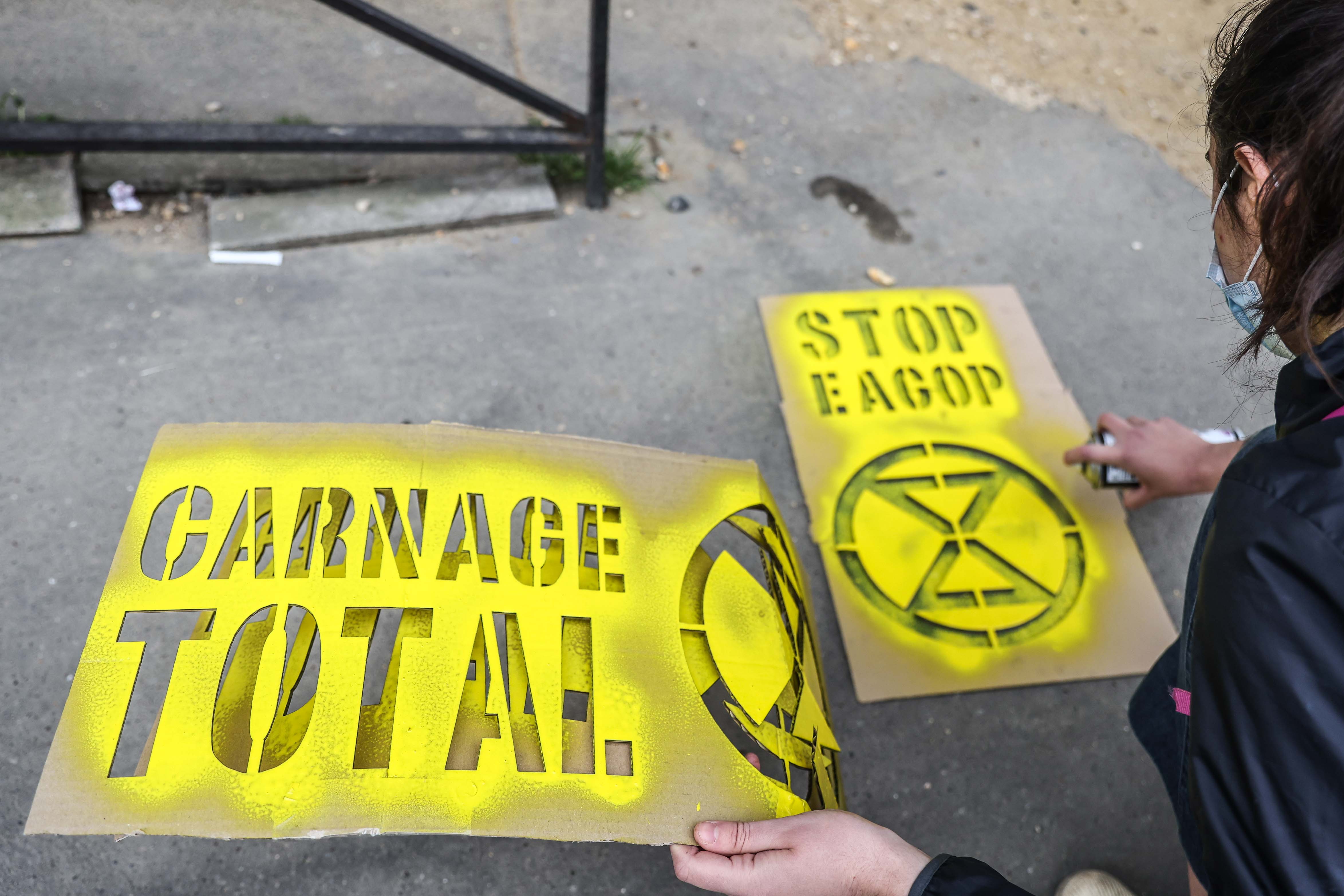OFFSHORE EXPLORATION
Legal battle brews over TotalEnergies’ offshore oil and gas drilling in Western Cape

Local eco-justice organisations have taken to the Western Cape High Court to stop TotalEnergies from drilling for oil and gas off the southwest coast of South Africa, alleging decisions were made without proper assessment of the environmental impacts.
TotalEnergies’ plan to drill for oil and gas off the Western Cape coast now faces legal challenges.
Local eco-justice organisations are seeking to have reviewed and set aside Total’s environmental authorisation by the Department of Mineral Resources and Energy (DMRE), as well as the Department of Forestry, Fisheries and the Environment’s (DFFE’s) dismissal of appeals against Total’s application to drill in Block 5/6/7.
The area of interest is 10,000km2 and located offshore roughly between Cape Town and Cape Agulhas, about 60km from the coast at its closest point and 170km at its furthest, in water depths between 700m and 3,200m.
The court case was launched by the Green Connection and Natural Justice against the ministers of the DFFE, DMRE and its director-general, as well as French hydrocarbon company TotalEnergies.
Read more in Daily Maverick: Drill, baby, drill: Environment Ministry gives Total green light for Western Cape coast offshore drilling
The environmental authorisation was granted following Total’s final environmental impact report (EIR) in terms of the National Environmental Management Act (Nema) but the applicants argue that the final EIR does not comply with one or more of the requirements set out by Nema, the National Environmental Management: Integrated Coastal Management (ICMA), or related legal obligations.

Extinction Rebellion members protest against the fossil fuel industry. (Photo: Gallo Images / Die Burger / Jaco Marais)
Thus, the applicants allege the DFFE and DMRE made their decisions without proper assessment of the environmental impacts.
This case, according to Natural Justice and the Green Connection, was about ensuring good governance in environmental decision-making that aligned with the protection of the marine environment, and that coastal communities – already extremely vulnerable to the impacts of climate change – did not face further impacts of exploring for and exploiting the nation’s oil and gas resources.
“We believe that the decision-makers should not have approved this exploration activity and that the judicial review is crucial for ensuring sustainable development and protecting everyone’s right to a healthy environment.
“We are hoping that the court will uphold everyone’s right to an environment not harmful to their health or wellbeing by setting aside the decision to award Total an environmental authorisation (EA) as well as the decision by the Minister of Forestry, Fisheries and the Environment to dismiss several appeals against the awarding of the environmental authorisation,” the organisations told Daily Maverick.
Concerns about environmental authorisation
The applicants allege that several factors were not considered when Total was granted environmental authorisation.
Among these is that the final EIR and the process in which it was prepared did not comply with Nema requirements, as well as the ICMA, which deals with the management of South Africa’s coast.
ICMA defines South Africa’s coast as “public property” which is owned by the citizens of South Africa and is held in trust for them by the state.

An Extinction Rebellion environmental movement activist protests in Paris on 10 April 2023. (Photo: EPA-EFE / Mohammed Badra)
Natural Justice and the Green Connection said this means decisions taken by ministers regarding the management of the coast must take into consideration the need to conserve and protect the coast for the benefit of the citizens of South Africa.
“We need our oceans to be healthy to combat climate change which is a crisis that impacts us all. We also know that the livelihoods of small-scale fishers and coastal communities are interdependent on a healthy ocean.
“We need to ensure its protection not just for the current generation but also for future generations,” they said.
The grounds of review in this case are as follows, according to the applicants:
- The final EIR allegedly failed to fully assess the socioeconomic impacts of an oil spill on fisheries and coastal communities.
- The final EIR allegedly failed to take into account considerations prescribed by the ICMA, and the interests of the whole community were not properly considered.
- In assessing the need and desirability of the proposed project, the final EIR allegedly failed to consider climate change impacts associated with the use of any oil or gas discovered by the proposed project.
- The Final EIR allegedly failed to assess the impacts of the Proposed Project which arose in Namibia, Namibian waters, or international waters.
- The alleged failure to properly consider the Oil Spill Blowout Contingency Plans.
Read more in Daily Maverick: Environmental groups lodge appeal after TotalEnergies gets the green light to drill wells off Cape coast
The applicants stated that the most serious adverse consequence would occur in the event of a well blowout, which the final EIR describes as “the uncontrolled release of crude oil and/or natural gas from a well after pressure control systems have failed”.
“Crude oil spilled in the marine environment will have an immediate detrimental effect on water quality, with the toxic effects potentially resulting in mortality (e.g. suffocation and poisoning) of marine fauna or affecting faunal health (e.g. respiratory damage).”
The court application included this description of the possible effects of a spill, which was taken directly from the final EIR: “Sub-lethal and long-term effects can include disruption of physiological and behavioural mechanisms, reduced tolerance to stress and incorporation of carcinogens into the food chain. If the spill reaches the coast, it can result in the smothering of sensitive coastal habitats.”
In terms of large-scale effects on fishing operations, more texts taken from the final EIR stated that this would likely include area closures and exclusion of fisheries from areas that may be polluted or closed to fishing due to contamination of surface waters by oil or the chemicals used for cleaning oil spills.
The applicants further stated that the impact of a blowout on marine ecology was rated as “very high” before and after mitigation. Further, the impact on the fishing industry was rated as “very high” before mitigation and “high” after mitigation.
In response to a media request from Daily Maverick, the DFFE simply referred to Creecy’s decision dismissing appeals where she argued that the authorisation was rational and reasonable.
The DMRE and TotalEnergies did not respond to media requests from Daily Maverick by the time of publication. Once responses are received, they will be added.
‘Short-term thinking’
The Green Connection’s community outreach coordinator, Neville van Rooy, said small-scale fishers have already seen concerning changes to available fish stocks, while devastating floods have ravaged parts of the country.
“We believe that these are the results of global short-term thinking and poor decisions. This is why we challenge this decision, to uphold the principles of sustainable development, to respond to climate change and protect the rights of present and future generations,” he said.

Signage for TotalEnergies at the company’s headquarters in the La Defense business district in Paris, France. (Photo: Benjamin Girette / Bloomberg via Getty Images)
Natural Justice programme manager Melissa Groenink-Groves said increasing investment in oil and gas projects threatened the country’s climate and the resilience of communities worldwide to adapt to that changing climate.
SA commitments
South Africa has committed to stay on a pathway to keep global average temperature increases below 1.5°C, which global experts agree can be achieved only if no new oil and gas reserves are exploited.
How the government justifies allowing ramped-up exploration activities for fossil fuels such as oil and gas, which contradict international climate obligations and jeopardise efforts to mitigate climate impacts, remains to be answered (this question was posed to both the DMRE and DFFE, with no response forthcoming).
The fossil fuel sector around the world continues to view Africa as the last region for oil and gas development, but the region is already experiencing some of the worst impacts of human-induced climate change.
As Daily Maverick previously reported, more legal challenges should be expected from civil society against drilling and exploration activities along South Africa’s seas in the coming years.
The applicants in this case believe that the proposed exploration is contrary to scientific consensus and will prevent South Africa from responding to the climate crisis in line with national and international obligations.
Read more in Daily Maverick: Stop oil and gas exploration madness, SA scientists urge government
Natural Justice and the Green Connection told Daily Maverick, “Why would we embark on exploratory drilling if we know we should not use the oil and gas?
“The EA continues to promote the benefits of oil and gas production while failing to adequately consider the risks of oil spills, etc. to small-scale fishers and other coastal communities whose livelihoods depend on a healthy ocean.
“This should be considered a fatal flaw concerning the need and desirability of this exploratory drilling.”
“The proposed exploration is not likely to create long-term jobs for South Africans,” said Natural Justice and the Green Connection.
Quoting from the Social Impact Assessment report, they said, “However, the proposed activities ‘could potentially affect fishing activities, as a result of fishing exclusion from the 500m operational safety zones around the drilling unit; increased underwater noise disturbance during drilling and VSP [vertical seismic profiling] activities; and the abandonment of the wellheads on the seafloor’.” DM


















There is an urgent need to stop seismic surveys as well which in some studies results in 100% kill rates to plankton and krill and which may results in a terrible knock-on chain effect on larger ocean life. Australia has recently banned seismic surveys over similar concerns and its time South Africa did the same before its too late.
Countries comply in their own country and then come break the rules in SA ,money talks for our goverment,they have stolen so much,they need more